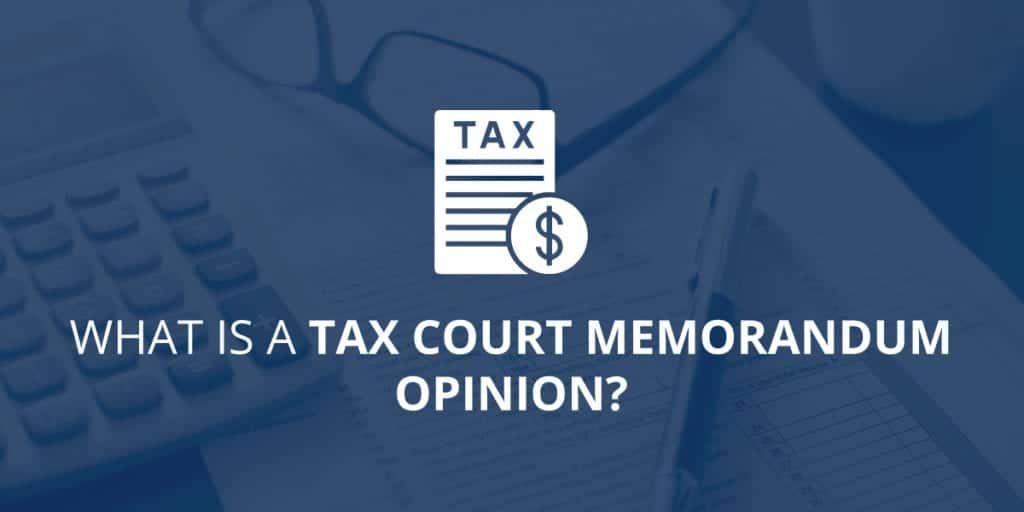
When you disagree with what the Internal Revenue Service (IRS) says you owe, your first formal step is generally to file an IRS appeal. Most tax controversies get resolved at this stage without the need for courtroom litigation. However, sometimes taxpayers need to go to court in order to avoid the imposition of unjust tax liability. These types of cases are heard by the U.S. Tax Court.
At the end of a case, the U.S. Tax Court renders a decision. This decision can either take the form of a “Tax Court Opinion” or a “Memorandum Opinion.” As explained on the U.S. Tax Court’s website:
“Generally, a Memorandum Opinion is issued in a regular case that does not involve a novel legal issue. A Memorandum Opinion addresses cases where the law is settled or factually driven. A Memorandum Opinion can be cited as legal authority, and the decision can be appealed. . . .
“Generally, a Tax Court Opinion is issued in a regular case when the Tax Court believes it involves a sufficiently important legal issue or principle. A Tax Court Opinion can be cited as legal authority, and the decision can be appealed.”
In other words, the determination of whether a decision will be issued as a Tax Court Opinion or a Memorandum Opinion is made based upon the nature of the issue involved in the case. Cases that the court considers to be more routine become Memorandum Opinions, while cases that involve “important” issues become Tax Court Opinions.
How Can I Tell if a U.S. Tax Court Decision is a Tax Court Opinion or a Memorandum Opinion?
Since the distinction between Tax Court Opinions and Memorandum Opinions is a matter that is decided once the case is over, it is not possible to determine into which category a case falls by reviewing the opinion itself. Instead, you need to look at the case’s legal citation. Tax Court Opinion citations will include a reference to “T.C.” and specific volume and page numbers in the Tax Court Reports. By contrast, Memorandum Opinions will include a reference to “T.C. Memo” and no volume number or page number.
Why Does it Matter?
Since Tax Court Opinions and Memorandum Opinions are both subject to appeal, and since both are made public (Memorandum Opinions are published on the U.S. Tax Court’s website), why does it matter into which category a particular case falls? The distinction has far less to do with the opinion itself and far more to do with how other U.S. Tax Court cases (and federal appeals) are decided in the future.
Although both types of opinions can be cited as legal authority, Tax Court Opinions are considered binding precedent. Essentially, this means that they establish new law (or new guidance) on tax-related issues. In contrast, a Memorandum Opinion is more likely to reflect an application of the existing law to the facts of a particular case. Even so, the U.S. Tax Court has stated that Memorandum Opinions still carry some precedential value; and, as a result, taxpayers and tax professionals must give due consideration to relevant Memorandum Opinions.
If you find all of this confusing, you are not alone. The federal tax laws and court rules are extraordinarily complex, and most taxpayers (and many tax professionals) do not have a firm grasp of IRS and U.S. Tax Court practice. If you have questions and would like to speak with an attorney, we encourage you to contact us for a complimentary case evaluation.
Request a Complimentary Case Evaluation at RJS Law in Southern California
To speak with a federal tax attorney at RJS Law, please call 619-595-1655 or contact us online. With offices in San Diego, and Orange County we represent clients throughout Southern California.

Leave a Reply